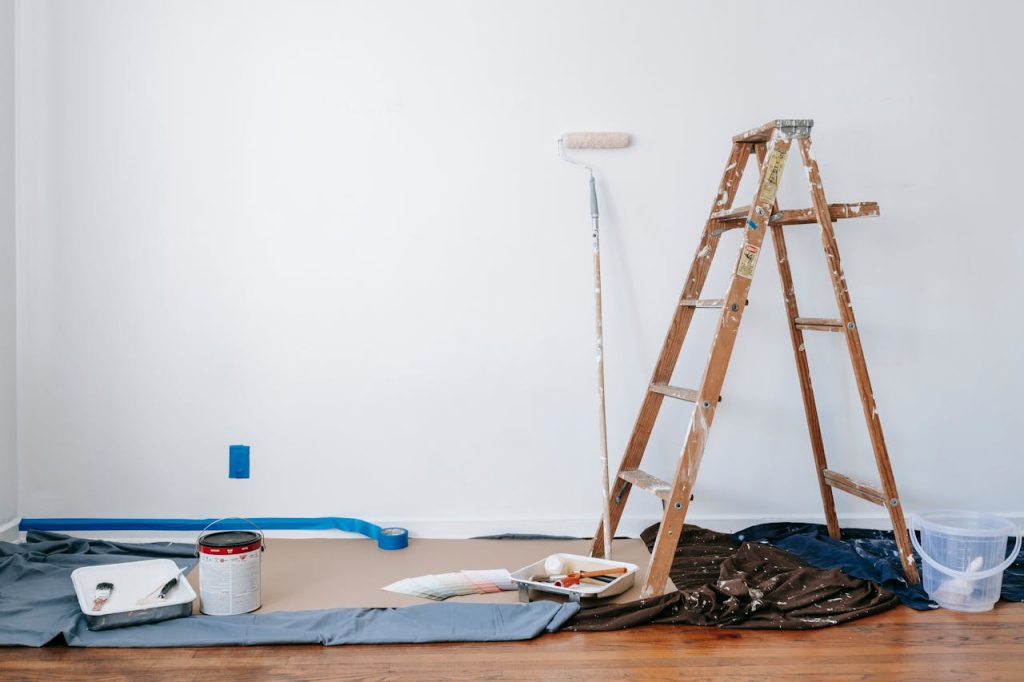
Renovating your home can be exciting. You want to save money and finish fast. But some shortcuts can lead to big problems. If you skip important steps, you might face lawsuits, fines, or even have to redo the work. Many homeowners don’t realize that cutting corners can break the law or void insurance. It’s not just about looks—bad renovations can put your safety and finances at risk. Here are ten renovation shortcuts that could cause lawsuits later.
1. Skipping Permits
Getting permits feels like a hassle. But skipping them is risky. Permits make sure your renovation meets safety codes. If you don’t get one, you could face fines or be forced to undo the work. Worse, if someone gets hurt because of unpermitted work, you could be sued. Insurance might not cover damages from unpermitted renovations. Always check with your city or county before starting any project. It’s better to wait than to pay for mistakes later.
2. Ignoring Building Codes
Building codes exist for a reason. They keep people safe. If you ignore them, you could create hazards like faulty wiring or weak structures. If someone gets hurt, you’re responsible. Even if you sell your home, buyers can sue if they find code violations. Inspectors can also flag illegal work, which can delay sales or cost you more to fix. Always follow local codes, even if it takes more time or money.
3. Hiring Unlicensed Contractors
It’s tempting to hire someone cheap. But unlicensed contractors are a gamble. They might not know the law or do quality work. If they mess up, you have little legal protection. Some states even fine homeowners for using unlicensed workers. If a worker gets hurt, you could be liable for medical bills. Always check licenses and insurance before hiring anyone. It’s not worth the risk.
4. Covering Up Mold or Water Damage
Painting over mold or hiding water stains might seem like a quick fix. But it doesn’t solve the problem. Mold can cause health issues and spread fast. If you sell your home without disclosing mold, buyers can sue for damages. Some states require you to report water damage. Fix the source of the problem, not just the surface. It’s safer and protects you from legal trouble.
5. DIY Electrical Work
Changing a light fixture is one thing. Rewiring a room is another. Electrical work is dangerous if you don’t know what you’re doing. Bad wiring can cause fires or shocks. If someone gets hurt, you could face a lawsuit. Many states require licensed electricians for major work. Don’t risk your safety or your home. Hire a pro for anything beyond simple repairs.
6. Removing Load-Bearing Walls Without Proper Support
Open floor plans are popular. But removing a load-bearing wall without adding support can make your house unsafe. The structure could sag or collapse. If someone gets hurt, you’re responsible. Even if nothing happens right away, future problems can lead to lawsuits. Always consult a structural engineer before removing walls. It’s not a place to cut corners.
7. Not Following Asbestos and Lead Paint Rules
Older homes often have asbestos or lead paint. Disturbing these materials without proper precautions is illegal and dangerous. Exposure can cause serious health problems. There are strict rules for removal and disposal. If you don’t follow them, you could face fines or lawsuits. Always test for hazardous materials before starting work. Hire certified professionals if you find any.
8. Improper Deck or Stair Construction
Decks and stairs need to be strong and safe. Using the wrong materials or skipping fasteners can lead to collapse. If someone falls, you could be sued for injuries. Building codes set standards for a reason. Don’t guess—follow the rules. Use proper hardware and check your work. It’s not just about looks; it’s about safety.
9. Poor Plumbing Work
Leaky pipes or bad connections can cause water damage and mold. If you do plumbing work yourself and it fails, insurance might not cover the damage. Water leaks can also affect neighbors in condos or apartments, leading to lawsuits. Plumbing codes are strict for a reason. If you’re not sure, hire a licensed plumber. It’s cheaper than fixing a flood.
10. Failing to Disclose Renovations When Selling
If you renovate and sell your home, you must disclose what you did. Hiding work, especially if it wasn’t permitted or up to code, can lead to lawsuits. Buyers can sue for fraud or demand repairs. Some states have strict disclosure laws. Keep records of all work and permits. Be honest with buyers. It protects you and builds trust.
Protect Yourself and Your Investment
Renovation shortcuts might save time or money now, but they can cost you much more later. Lawsuits, fines, and repairs add up fast. The best way to protect yourself is to follow the rules, hire qualified people, and fix problems the right way. Your home is a big investment. Don’t risk it for a shortcut.
Have you ever faced problems from a renovation shortcut? Share your story or advice in the comments.
Read More
Why Do Relationship Arguments Spike After Home Renovations?
Could That Renovation Be Why Your Taxes Just Went Up?
The post 10 Renovation Shortcuts That Could Cause Lawsuits Later appeared first on Clever Dude Personal Finance & Money.







